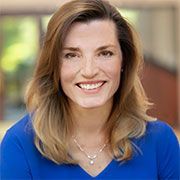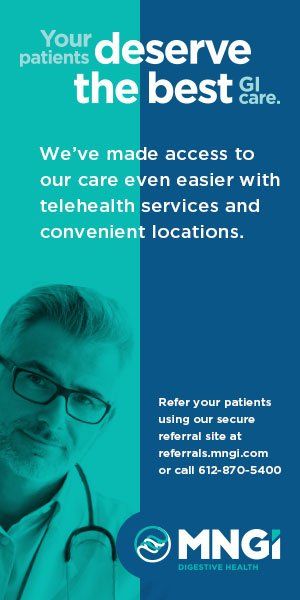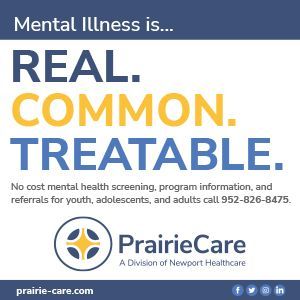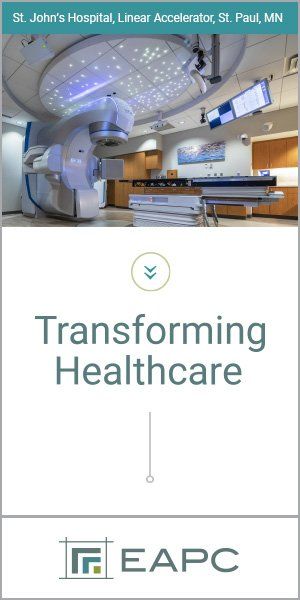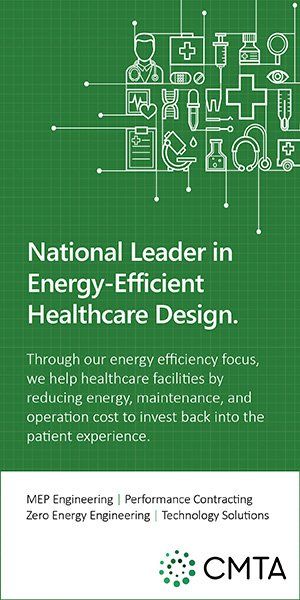Interview
Patient-centered Home Care
Susan Morgan, chief operating officer, Accra
Please give us some background about Accra and the populations you serve?
Accra is a nonprofit organization that provides individualized home care services to people with disabilities and older adults, most of whom are Medicaid enrollees. Our person-centered philosophy focuses on treating each person as a unique individual, helping them lead fuller lives. We operate in all 87 Minnesota counties and have service centers statewide.
Our self-directed services support children, adolescents, adults and families who need help in their homes. Our services often help people who need care with “activities of daily living” (ADLs), such as dressing, grooming, eating, bathing, transfers, mobility, positioning and toileting, as well as light housekeeping, laundry, meal preparation for adults and other health-related tasks.
Our service programs include PCA choice, financial management services, 245D Waivered Services, individualized mental health counseling, adult rehabilitative mental health services and senior assisted living at High Street House, a quaint assisted-living community located in Lake City. In every program, our work returns to our mission: to improve lives by providing individualized home care services and support to people at home.
There are many ways patient health could be improved through better coordination between home care providers and physicians. What can you tell us about this?
Improving coordination between home care providers and physicians is crucial for enhancing patient health outcomes. Home care providers, who spend more time with patients than do physicians, offer valuable insights into a patient’s daily life and important information about social determinants of health, including the patient’s daily activities, challenges and progress. This information allows physicians to make more informed decisions about treatment adjustments or modifications.
One of the primary benefits of coordination between home care providers and physicians is early detection of issues and prevention of hospital readmissions. Home care providers are often the first to see changes in their patient’s condition or behavior. By closely monitoring for potential complications and promptly reporting any changes, home care providers can help physicians address potential issues before they escalate and require hospitalization.
Streamlined coordination will also help maintain more consistent care. When home care providers and physicians are aligned in their approach, it minimizes confusion and provides a sense of stability for the patient, which in turn improves patient satisfaction. This can lead to better engagement with their care plan and ultimately contribute to improved health outcomes.
We have found that effective coordination between home care providers and physicians leads to a more patient-centered approach to healthcare. This holistic approach can improve patient outcomes and enhance the overall quality of care provided.
What are some obstacles to this improved communication?
The current American health care system is not conducive to collaboration between physicians and home care providers, especially for those patients who are Medicaid recipients. Currently, their physicians cannot bill for the time to coordinate care with home care providers, unless the client is receiving home health services, and health care data are not easily shared between them.
To help break down these barriers, we collaborated with a community partner to roll out Clinic@Home this year, allowing eligible clients to obtain health services through a hybrid home care program. The Clinic@Home program couples a home nurse with a customized flatscreen TV that communicates health data and connects patients to their physicians and other care team members from the comfort of their homes.
The Clinic@Home care system offers a unique combination of advanced technology, including telemedicine via television, remote patient monitoring and medication dispensing devices, with high-touch nurse guidance and patient training that occurs entirely in the client’s home.
Clinic@Home enables Medicaid waiver enrollees to better access, monitor and share health care information with their physicians, thus avoiding hospitalization or out-of-home placement for as long as possible.
Improving collaboration between physicians and home care providers will improve patient outcomes.
What are some of the ways Accra works with counties and tribal agencies?
The vast majority of our referrals for all services come from the county or tribal agencies. Through numerous communications about shared clients over our 30 years of service, we have developed strong relationships with these lead agencies.
We also exhibit at a variety of conferences throughout the year where attendees from lead agencies speak to our staff and learn more about our vast array of services. Beyond these connections, we run a unique program called Accra Ed where we travel to different areas of the state and present to the case managers who refer and approve services for their clients. We inform them about the many ways we can help their clients remain living at home with whatever supports are necessary.
How do you work with managed care organizations?
We have contracted with all MCOs in Minnesota and work particularly closely with those that help manage the Medicaid benefit for clients. Sometimes referrals come directly from an MCO, and occasionally we reach out to them to collaborate on new models of care. Our relationships with them have been very positive because of these connections.
MCOs have varied billing methods, different from billing DHS for services, which has presented some hurdles to us and other providers over the years. We remain hopeful that the state can help support the need for a standardized billing process that would be beneficial to Accra and other contracted providers. We all need to be paid appropriately for the services staff provide.
Please tell us about your advocacy efforts to improve the post-acute health care system.
We have worked with advocacy organizations to help identify ways to improve the required processes for billing out services to an MCO. We have made some progress but hope to see more in the near future.
Accra is also a strong leader in working directly with the legislature to support needed increases in provider reimbursement. This is needed to ensure there is an adequate foundation of providers in Minnesota who can employwell-trained staff to provide these post-acute services to people living in their homes. Currently, some of these services are at risk due to decreasing margins, caused by a multitude of reasons. We have seen some home care agencies close as they are faced with staffing crises, as well as financial hardships.
Part of your personal work includes overseeing the client/caregiver experience. What does this entail?
As chief operating officer, I oversee operations of all Accra programs and implement changes from regulatory agencies. We strive to serve individuals from a holistic perspective and meet the needs of people in their communities. Additionally, we aim to connect our clients to the most beneficial resources within their communities so that they can stay in their homes as long as possible.
Customer service is a vital component of our services and another focus area of my work. We’ve always prided ourselves on the ability to answer calls with a live person who is willing and knowledgeable to either answer their questions or direct them to someone else who can. We have a large team of highly trained individuals available to help support our clients, our caregivers, as well as the general public. In addition to phone calls, we are constantly seeking new ways to communicate, most recently by adding a portal that allows them to access all kinds of information about their care, or for an employee, about their work hours.
Training our staff to provide top quality care is also essential and something we take to heart to assure our clients receive the best care possible.
What can you tell us about the Accra Way Fund?
The Accra Way Fund (AWF) is a program that offers funding support for our clients, their families and caregivers. The fund is used to purchase an item or service that supports a therapeutic goal or enables a more self-directed life. Funds are available for items or services that cannot be purchased through Medical Assistance or other funding sources.
This year, our AWF committee transitioned to a team of four individuals focusing on supporting our clients’ overall health and safety needs. We have reimagined how funding is provided by creating an integrated community resource model. Assuming both county and community resources have been exhausted, we have assured that AWF dollars have been used responsibly and efficiently. Since 2022, 53 AWF recipients have been served, with a total of nearly $25,000 in awards.
Through the Accra Way Fund, clients have received various items and supports that unlock a more self-directed life, including a walking cane, medication machine, stroller wagon, shower chair, Yoto Player, snow removal services and sensory items, such as a crash pad.
Diversity, equity and inclusion initiatives are increasingly important in every element of health care delivery. What are some of the ways Accra is addressing these issues?
We acknowledge that creating a truly diverse, equitable and inclusive workplace requires ongoing effort, and we are committed to doing the work necessary to make it happen. We first launched an official diversity, equity and inclusion committee in 2020, and since then, the committee’s work has dramatically expanded and made an impact on our organization. We have implemented several initiatives and programs to support our DEI efforts.
We provide a safe, non-judgmental space for employees to discuss current events, DEI topics, or anything weighing on their minds. We conduct an annual DEI survey, which most recently found that 96% of employees feel that Accra is committed to DEI. And our DEI book club gathers regularly to discuss books that correspond to our monthly DEI observances and highlight diverse perspectives, stories and experiences.
We also host employee panels, where our team members share their perspectives and experiences with their colleagues and build community, and we develop a monthly DEI Bulletin that highlights local happenings, shares employee perspectives and brings awareness to DEI issues.
Our goal is to cultivate a workplace where diversity thrives and an environment in which empathy, respect and openness are ingrained in everything it does. We are committed to listening, learning and improving so that we can create a workplace where everyone feels valued, supported and empowered to do their best work.
Many physicians may not know about 245D Waivered Services and how they could improve the health of their patients. What can you share about these services?
245D Waivered Services include respite, homemaker, individual community living support (ICLS) services, individual home supports (IHS) without training, IHS with training, and night supervision services. For each 245D service, clients select a trusted, qualified worker suited for their needs, while for IHS with training, a qualified staff member is matched to the clients to meet their needs. In all services, an assigned 245D Accra service coordinator works with the client and county case manager to set up and administer their services.
245D covers a broad range of services. IHS without training includes support, assistance and supervision to adults or children living in their homes. A staff person provides direct supervision, cueing, guidance, instruction, assistance with activities of daily living, or assistance with coordinating and attending community living activities. Meanwhile, homemaker services can cover light household cleaning, laundry and help with home management, including meal prep; shopping for food, clothes and supplies; simple household repairs and transportation arrangements.
Respite and night supervision often get confused. Respite is a short-term care service intended to provide a break to an individual’s primary caregiver, and it may be provided in the individual’s home or the respite provider’s home. Night supervision is a non-preventive service consisting of overnight assistance and monitoring provided by home care staff in the client’s home when the client has an assessed need for assistance overnight.
Health care workforce shortage issues are a problem across the care delivery spectrum. How is Accra dealing with these concerns?
As a nonprofit organization, we focus on a self-directed model of home care. Within all our programs, patients independently select the people who provide their care, who are often already members of our client’s support network. This model gives patients greater responsibility in managing their care and means their caregivers are often motivated by personal connection and concern.
We supported legislation to increase the PCA-choice wage to $19/hour starting Jan. 1, 2024. This increased pay will help recruit more caregivers to the field.
What are the most important things you would like physicians to know about the work Accra does?
We see home care as the front line of the health care system. Our caregivers are often the eyes and ears that can identify potential health issues before anyone else. But we need to keep expanding communication with physicians to realize the best results for our clients. Improving collaboration between physicians and home care providers will improve patient outcomes.
Our vision is to build the ecosystem that delivers personalized care in the home to better meet the needs of those served by the current health care system. We encourage Minnesota’s physicians to work with us in striving toward this vision.
Susan Morgan, RN, is the chief operating officer at Accra, where she has held several leadership roles. Her 40-year career has been dedicated to providing person-centered care and serving individuals from a holistic perspective.
MORE STORIES IN THIS ISSUE
cover story one
The Minnesota RETAIN Study: Chiropractic care in return to work issues
By Deb Zurcher, LAc, DC
cover story two
Safeguarding Men’s Health: The role of sperm counts





